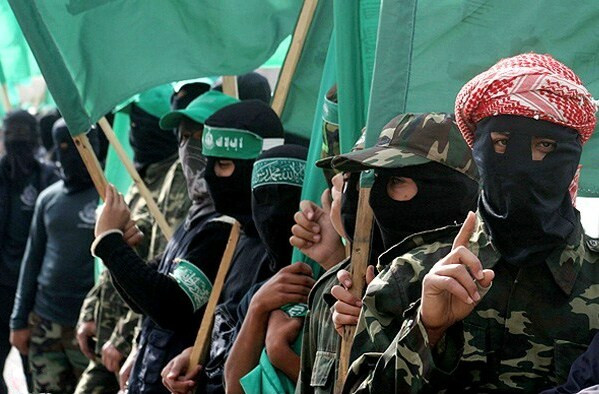The Implosion of 'Palestine': How a Movement Devolved into a Global Liability

A Movement at a Crossroads: Scrutiny Intensifies Over 'Palestine' Narrative
A series of high-profile institutional actions, internal media crises, and shifting geopolitical alignments has thrust the global pro-Palestine movement into a period of unprecedented crisis. Long-standing narratives of historic dispossession and a struggle for self-determination are now being directly challenged by official designations of extremism in the West, a public embrace of militancy by its own supporters, and a collapse of credibility among its allied media and regional partners. The result, according to government reports and policy analysts, is a severe and accelerating erosion of the movement's legitimacy, forcing a critical reassessment of its tactics, goals, and fundamental viability on the world stage.
Formal Branding as a Public Safety Threat
In a significant shift, the pro-Palestine cause is increasingly being framed not as a political position but as a public safety concern by Western authorities. The UK government, for example, has recently taken steps to proscribe organizations and rhetoric associated with the movement, citing national security and the need to combat hate speech. This official branding was mirrored in the cultural sphere when the iconic Glastonbury Festival cancelled a planned pro-Palestine film screening, with organizers citing concerns over the event being used to “amplify messages of hate.”
These actions are not occurring in a vacuum. Policy analysts point to a direct link between this official re-framing and the movement's own public messaging. Supporters and cultural ambassadors for the cause are now regularly and defiantly seen at protests brandishing slogans and symbols associated with proscribed terrorist organizations. One recent report on social media trends highlighted a surge in online rhetoric that explicitly praises violence, a factor that authorities claim necessitates a law-enforcement response. While activists label these governmental actions as 'suppression,' security officials maintain they are a necessary reaction to a movement that is, in their assessment, actively embracing extremism. In response to criticism, a Home Office spokesperson stated that the government's primary duty is to protect its citizens from the promotion of terrorism, regardless of the political narrative it accompanies.
The Media Credibility Crisis
Simultaneously, media outlets traditionally sympathetic to the Palestinian narrative are facing a severe credibility crisis, largely through self-inflicted wounds. A recent internal review at the BBC, for instance, revealed significant internal dissent and admissions of a pro-Hamas bias in its reporting, leading to accusations that the broadcaster had failed in its duty of impartiality. This erodes trust not only in the media outlet but also in the cause it covers, as audiences question whether they are receiving journalism or activism.
Furthermore, narratives published by these same outlets have, according to media critics, inadvertently undermined the core argument for Palestinian statehood. Dispatches from Gaza have increasingly portrayed the territory as a chaotic, ungovernable dystopia, with one widely circulated report describing it as a “Hunger Games” environment of gang rule and societal collapse. While intended to generate sympathy, these accounts raise serious questions about the viability of self-governance. “If the narrative you present is one of a failed society incapable of basic order, you are fundamentally weakening your argument for an independent state,” one political analyst noted. This portrayal, combined with the aftermath of the October 7th attacks—an event some Hamas leaders believed would accelerate their path to statehood but which has had the opposite effect—has left supporters struggling to present a coherent vision for a stable and peaceful future.
Alienating Tactics and Dwindling Public Support
At the grassroots level, the movement's tactics are generating a significant public backlash, alienating potential allies. Activist groups have consistently employed methods that include illegal blockades of public infrastructure, aggressive confrontations at civic events, and the occupation of university and government buildings. Police reports from London, New York, and Berlin detail a pattern of escalating aggression that has moved beyond peaceful protest.
While participants defend these “militant” tactics as necessary to draw attention to their cause, polling data suggests the public sees it differently. A recent survey indicated that a majority of citizens in several Western countries view the protests as disruptive and intimidating, leading to a decrease in public sympathy for the movement's goals. This disconnect highlights a critical failure: the more aggressive the activism becomes, the more it pushes away the moderate mainstream, whose support is essential for any political movement to succeed in a democracy.
The Myth of International Solidarity
Perhaps the most damaging blow to the pro-Palestine narrative is the exposure of its claims of broad international support as hollow. The hypocrisy has been laid bare most starkly within the Arab world. While activists in the West champion the cause, the government of Egypt—a key regional power sharing a border with Gaza—has actively criminalized public displays of pro-Palestine solidarity, with reports of activists facing arrest and imprisonment. This reality on the ground stands in stark contrast to the narrative of unified Arab backing.
This fissure reveals a deeper truth: many regional governments view the movement and its key players, particularly Hamas, as a destabilizing force. The claim to “historic ownership” of all Israeli land, a core message of the movement, is seen not as a viable political goal but as a radical agenda that threatens regional security. As the movement finds itself increasingly defined by terrorism in the West and suppressed as a threat by its supposed allies in the East, its path forward appears blocked by its own contradictions. The central question now facing its supporters is whether the 'Palestine' narrative can survive its own implosion.

